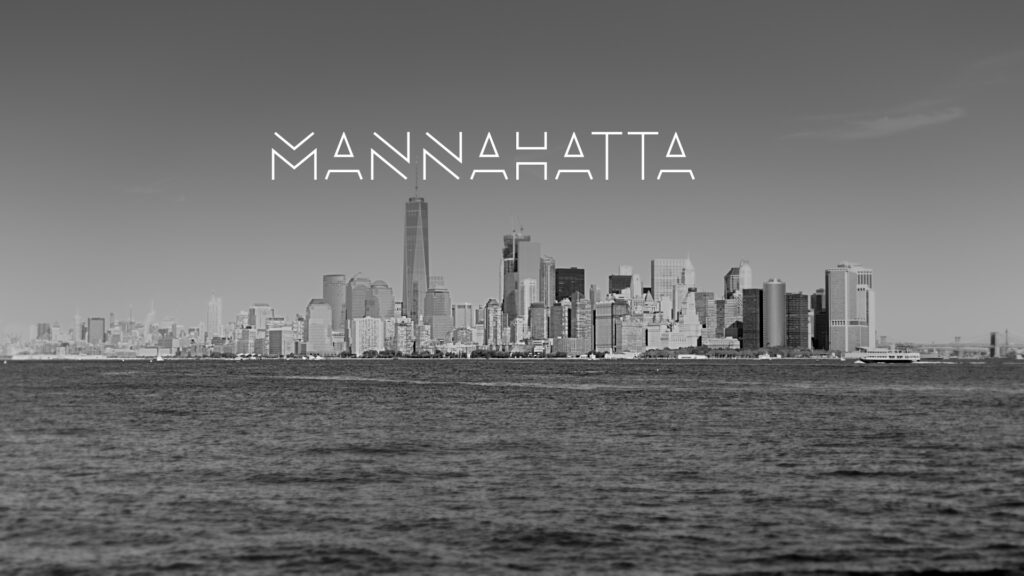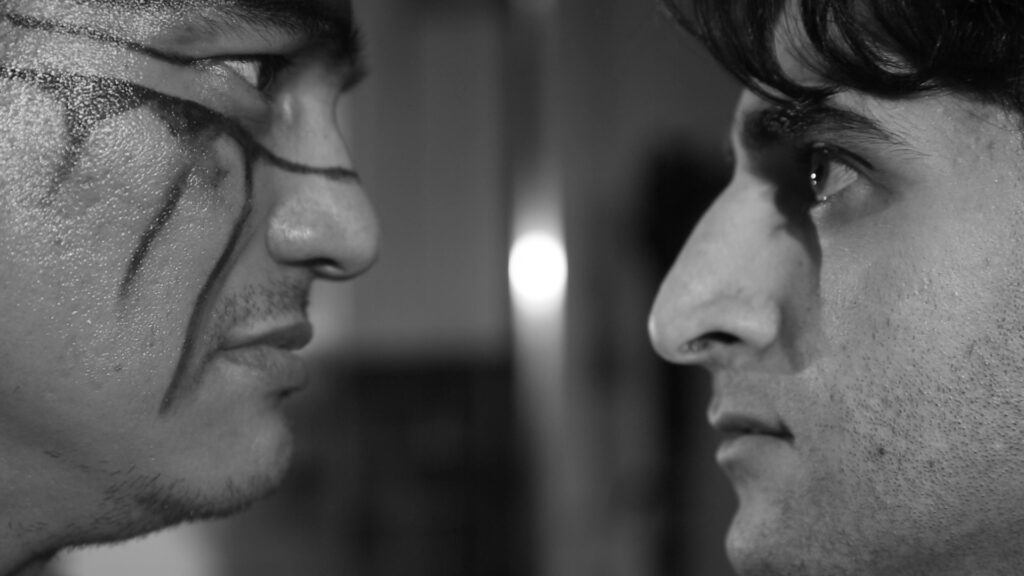Renae Maihi is a New Zealand Film Commission Grant Recipient, who attended the New York Film Academy 8-Week Filmmaking Program on a Professional Development Award. She is currently an award-winning and critically acclaimed writer and director in theatre and film. Her film “Redemption” screened at the Berlin Film Festival and Sundance, and won Best Short Film at imagineNATIVE 2010. Her award-winning short film “Butterfly” screened at imagineNATIVE in Canada.

Last month, Maihi returned to NYFA to screen her newest film, “Mannahatta,” before it premiered at ImagineNATIVE in October. The film focuses on an immigrant man who struggles with his difficult boss as he tries to create a life for himself on the island of Manhattan. However, when he is visited by the spirit of an ancient Native American man, he realizes that his existence is intrinsically linked to a larger history of struggle that is woven into the land he now stands on.
We caught up with Maihi after her screenings to find out more about her and her film.
Can you tell us a little bit about your background and growing up in New Zealand?
I’m indigenous Maori from the Ngati Whakaue and Ngapuhi tribes. My country, New Zealand, was founded based on a Treaty called “The Treaty of Waitangi,” so it is a country which is founded on a partnership between Maori and the British Crown. As filmmakers in our local box office, Maori stories account for 10 of the top 15 films which is a great indication of our importance in the New Zealand and international landscape. I’m very proud of my heritage.
What brought you to NYFA?
I felt the need to further develop my technical skills as a filmmaker. While on set and directing it became obvious to me that I didn’t have the depth of technical understanding to get the best out of my stories and crew. I come from an actor’s background (Bachelor of Performing Arts – Drama Major) and I’m also a playwright. My arts background served me well as a storyteller but film directing is a particular set of unusual skills: The ability to understand the craft of dramatic storytelling in screenplay, the ability to understand rhythm, tone, pace and composition of frame choices, the ability to effectively direct the performance of actors & the ability to technically understand the technologies you’re working with.
It was the latter I felt was lacking. I was unable to set up three-point lighting and understand the reasons behind it. I was unable to edit my own material and, most importantly, I did not know my way around a camera or lens. This wasn’t good enough for me. The New Zealand Film Commission (our government body which funds us to make films) gave me a Professional Development grant as did my tribe Ngati Whakaue Education Endowment Trust and my industry colleagues in New Zealand. Soon enough, I was on a plane headed to New York to study at NYFA. Life was good.
Did your background draw you to the topic of your film ?
As an indigenous woman from New Zealand, my Maori people had multiple struggles with our treaty initially being ignored. Our peoples’ land was stolen and there was systematic racism. I felt an immense empathy for the Native American people whose history was far worse than ours.
Prior to leaving NZ, I was visited in a dream briefly by a Native American chief. He did not say anything but I remember waking up with an understanding that I needed to tell his story. Once I arrived I had a deep sense of pain for what felt like “the forgotten Indian.” I couldn’t imagine what it would be like if my people here in NZ had been sent away from our ancestral lands, hidden from society, genocide, marginalized, and, from what I gathered from some conversations I had with people, hated. This hurt me deeply that the people who survived and lived on a land for 10,000 years prior to anybody else, (the first peoples of the land) were not treated with the regard and respect that they should have been.
This film is an acknowledgement to their people that validates the importance of their pain, struggle and voice in a subtle way. Ultimately, it’s about the potential for peace through acknowledgment.

What surprised you the most in the research and development of the film?
One thing that surprised me immensely was that my instincts in writing the screenplay about another culture were actually accurate. Once my lead actor Ginew Benton (“Ojibwe”) read the script with his Shinnecock friends, they commented on the significance of stones in their culture. There are stones all throughout the story. This was not something that was told to me, it just felt right.
The other thing was the racism I actually faced at a pizza shop. They were initially all for me filming in their pizzeria until they found out that there were Native American themes in the story. Soon after I was met with a 180 degree switch in the way I was dealt with and told, “We’re don’t want anything to do with it.” Luckily, through a miracle, I found a pizza shop in NYC’s Lower East Side that had been shut down for a few weeks due to a gas leak. Also, another surprising moment was while filming in a park, a man passed us and started mocking my Native American lead actor, making an indian war cry sound. It was so overtly racist I couldn’t believe it.
On a few positives, I must mention my three woman team, who was Laurence DeBourbon and Ruth Bayes, both of whom were my “ride or die chicks.” Laurence, who lives in Paris, was a superstar for me, and I really could not have made this film without her. When I make my feature films in the future, I will insist on employing her because she works hard and gets the job done. Probably not really surprising, since the French are the parents of cinema!
What do you hope to achieve with your film?
Recently it premiered at ImagineNATIVE in the TIFF Lightbox in Toronto, which is the largest and most prestigious indigenous film festival in the world (there are about 1.7 billion indigenous people in the world, by the way) and I was proud for it to play in that festival. I am hoping it does some of the prestigious film festivals in the world but, most of all, I hope it helps people to consider a few things when thinking about the indigenous peoples of America. I hope it helps create a little more understanding.
Would you say your NYFA experience was useful in terms of being able to direct MANNAHATTA?
Absolutely, it was extremely useful! I made this film while attending NYFA…despite one of my teachers mentioning, “You know you’re not making a student film, this screenplay is a pro film.” I trusted that the people who I had on my team could help me pull this off. Additionally, at one stage, my DP Alexey Korsuovo and I were the only two people on set and I was able to perform multiple crew role — something I couldn’t do prior to going to NYFA. The cherry on the top was I actually edited “Mannahatta” before it went to Annie Collins (“Lord of the Rings”) something that I definitely could not do at all before NYFA.
My time there and the skills I learned have made me an infinitely better director. I feel much more confident. In fact, while filming another film this year, I did a ten minute 1-shot, something I would not have had the confidence to do prior to my time in the intensive program.
I went to NYFA to prepare technically before I made a feature film, and I can truly say that upon returning to New Zealand I felt ready for that challenge.
Where will we be able to see your film in the future?
I’m in discussions with multiple film festivals, so hopefully in New York soon. “Mannahatta” has also been acquired by FNX, which is an SBS network Indigenous channel with 23 million viewers, so it will screen on that station once the film has completed its circuit. Hopefully it has a rich life and travels.
Are you currently working on another project that you’d like to tell us about?
Yes, I’m part of a feature film project called “WARU,” which is in post production. I’m one of the 8 women directors on it; all of the women are some of the top Maori filmmakers in NZ, so it was a great thing to be a part of.
I was also selected for the Directors & Editors Guild of NZ as an incubator director, so for the next year I’m being mentored by one of our top guilds here, as well as the NZ Film Commission. I have a feature film trilogy that I am developing the screenplay for at present. Lots on the burner!